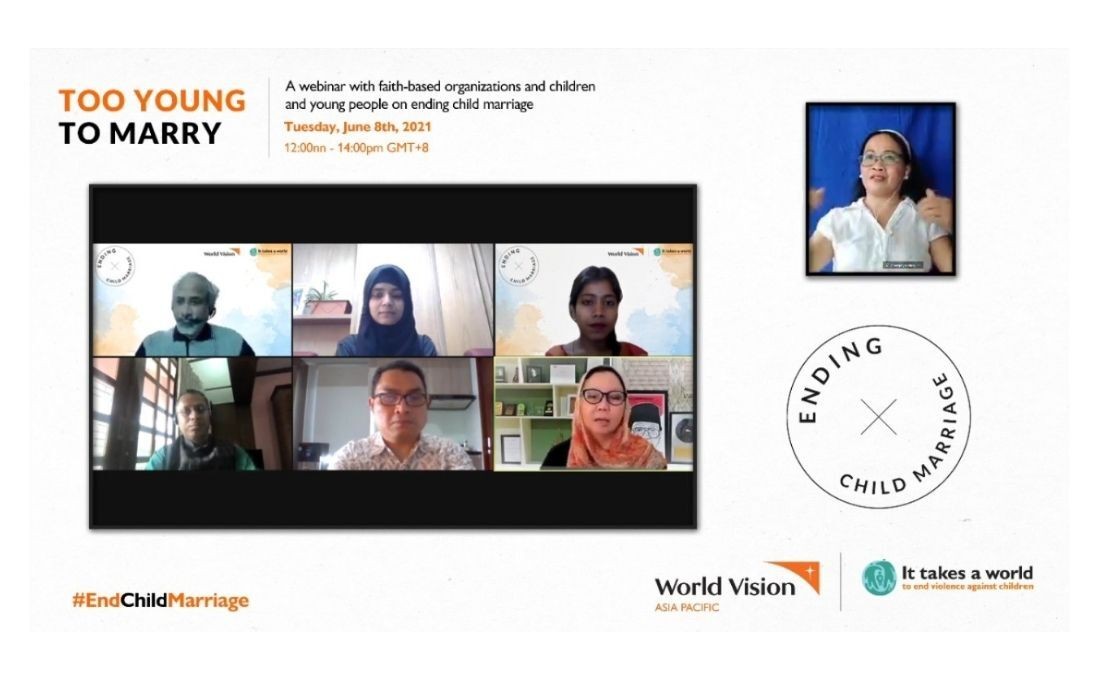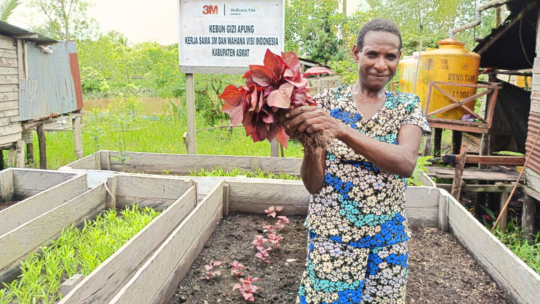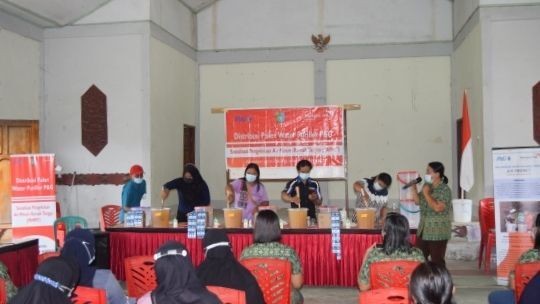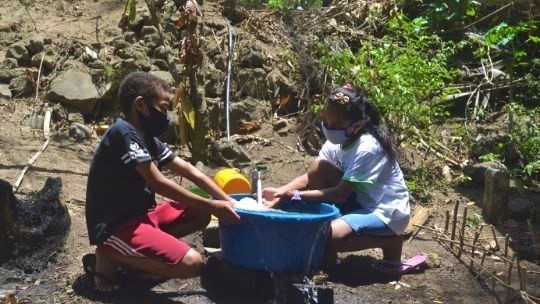Stop Child Marriage, Who is Responsible?

Data of 2018 shows that 1 in 9 Indonesian children married before the age of 18. As many as 1.2 million women married before 18 years. Indonesia is included in 10 countries that have a high prevalence of marriage. From 2008 to 2018 the prevalence rate of child marriage only decreased by 3.5%. During the COVID-19 pandemic, child marriage is on the rise.
This is indicated by the application of marriage dispensation in Indonesia which rose from 23,700 in 2019 to 34,000 in 2020. The increase in child marriage was caused by economic reasons, unwanted pregnancies, boredom to study from home, and avoiding adultery.
In her presentation in the international webinar Too Young to Marry with religious-based organizations held by World Vision Asia Pacific, Tuesday (8/6/2021), Alissa Wahid, National Coordinator of the Gusdurian Network who is also an activist for democracy and human rights, explained that the issue of child marriage in Indonesia is like an iceberg.
He said, behind the various cases that emerged, there were still many traditional views at the community level, that girls should be married off quickly, women did not need to have higher education, and various other views. This requires comprehensive strategies and programs ranging from regulation to changing people's mindsets to stop child marriage.
"Therefore, in addition to encouraging public policy, strengthening at the grassroots level through the work of civil society organizations, it is important to work together and increase the capacity of local leaders, teachers, youth leaders, and religious leaders," he added.
The daughter of the 4th President of Indonesia explained that children should not be too young to marry, become parents, and or bear the burden of taking care of their family, let alone building a better world. For Alissa, it is proper that the protection and care of children is a shared responsibility.
"It's not about the kids. Ending the child marriage is about us."
The webinar was also attended by Refi (16), a child from Sigi Regency, Central Sulawesi, a child assisted by Wahana Visi Indonesia (WVI) who said that the Covid-19 pandemic had made the situation worse.
"Many children are getting married during the pandemic. This would not have happened if the adults around us could accompany and provide us with the correct knowledge," said Refi.
Although the Indonesian government has limited the minimum age of marriage to 19 years, said Refi, children also need information and assistance that can prevent children from bad associations, and so that children know about reproductive health.
"We hope that adults can also be more active and responsive, and can help us create a positive environment and activities to pass the time," he said.
Meanwhile, the Advocacy Manager of Wahana Visi Indonesia, Junito Drias, said that the case of child marriage needs to be seen in the context of structural poverty, where children find it difficult to escape the clutches of child marriage due to limited access to economics, education, and protection.
"In addition to the family and the surrounding environment, government policies are needed to provide these accesses, so that parents do not view marriage as a solution to economic problems or problems such as child pregnancy," said Drias.
WVI through programs in the field of child protection continues to carry out socialization, education, community empowerment efforts regarding the prevention of child marriage in 14 provinces in Indonesia to policy advocacy at the local and national levels.
Written by: Amanda Putri, Media Relation Executive Wahana Visi Indonesia



